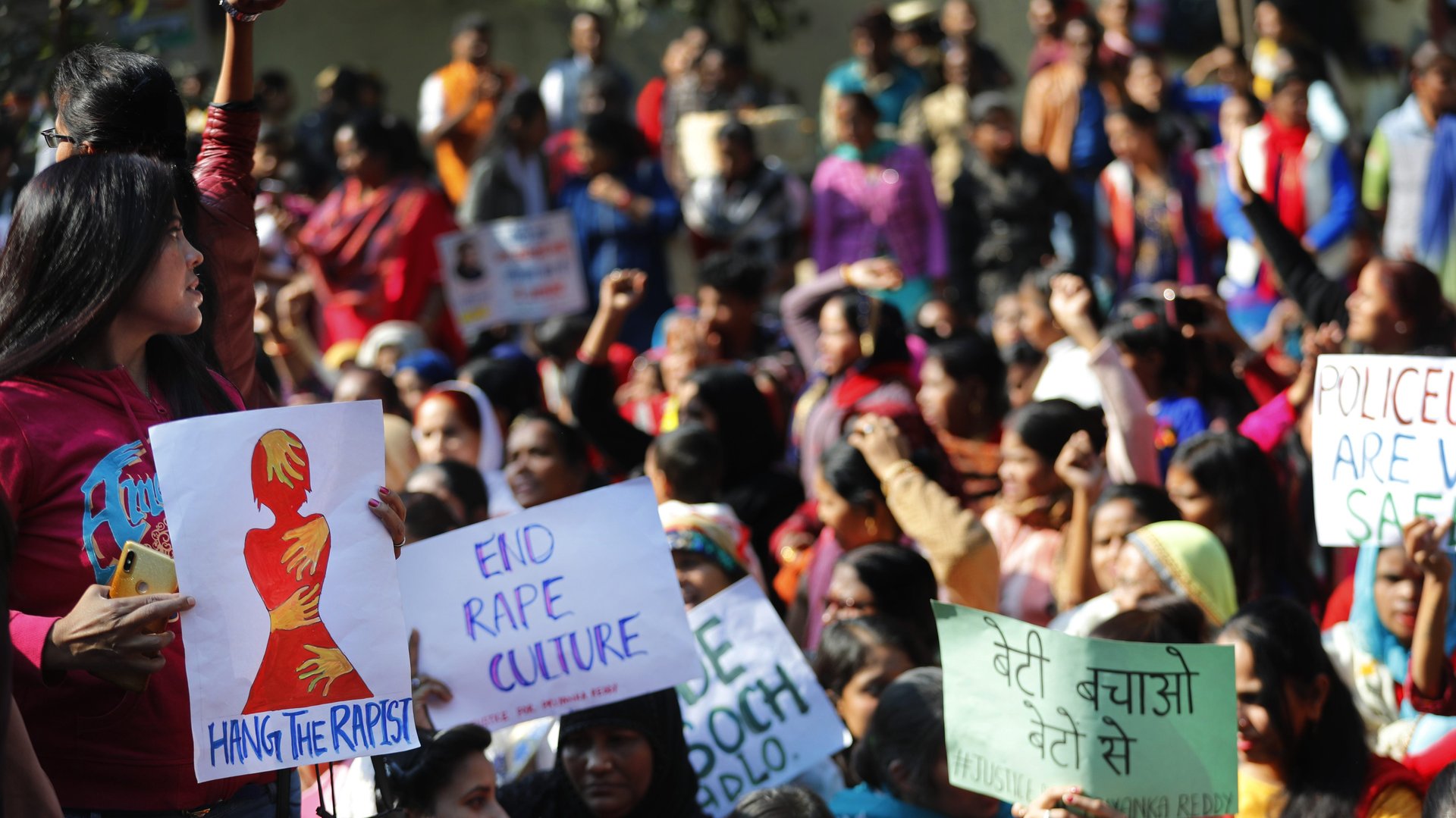Delhi #boyslockerroom chat throws a harsh light on rape culture in India
Leaked screenshots of a private Instagram chat group have stirred up a storm over rape culture in India.


Leaked screenshots of a private Instagram chat group have stirred up a storm over rape culture in India.
Several Instagram accounts yesterday (May 3) posted stories with chats from a group titled “bois locker room.” The group’s members, seemingly belonging to some reputed schools in Delhi, purportedly made derogatory comments about women and morphed their bodies in the group chat, claimed Ashnaa Sharma, a Delhi-based influencer with nearly 27,000 followers on the photo-sharing app.
Soon, the news spread on Twitter, too, and #boyslockerroom began trending. A few users even claimed to have gone to school with some of the chat group’s members.
Later, Sharma and other girls who were posting about the group chat said they received abuses and threats and their accounts were being hacked.
Eventually, some of the boys issued public apologies, but the Twitterati were in no mood to let go of the violation of the privacy of underage girls as an innocent mistake.
The problem, however, may be bigger than only one or two schools. Victim-blaming is often normal in India’s conversations around rape.
Mukesh Singh, the driver of the bus in the infamous 2012 Jyoti Singh gang rape case, had said, “A girl is far more responsible for rape than a boy.” In January 2014, Asha Mirje of the Nationalist Congress Party (NCP) in Maharashtra said women invite rape through their clothes and behaviour.
Even when the #MeToo movement briefly hit the headlines in India in mid-2018, the victims themselves were often questioned.
Some of the responses to #boyslockerroom only reflect this larger problem.